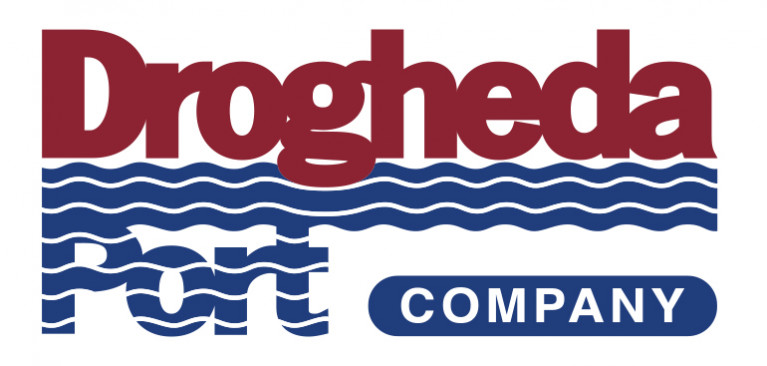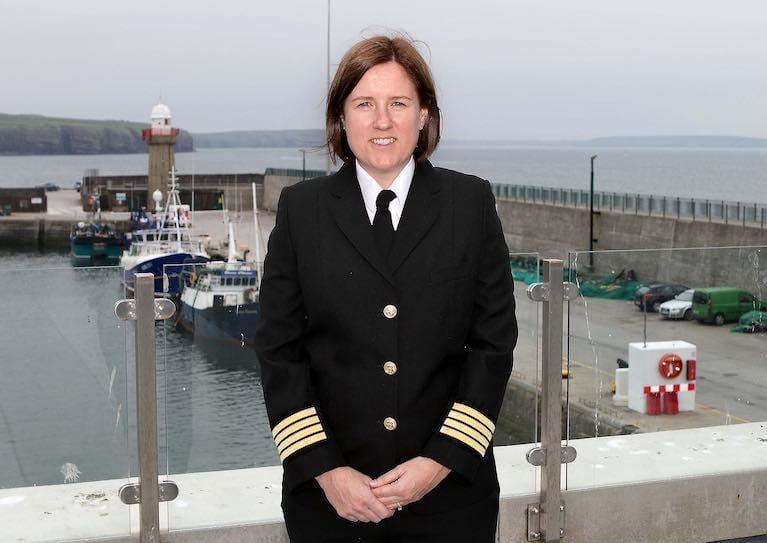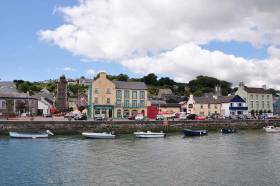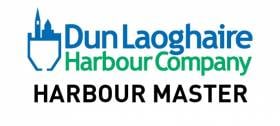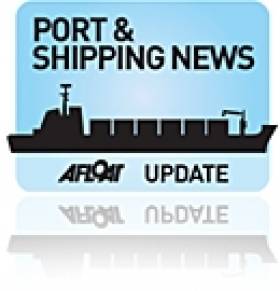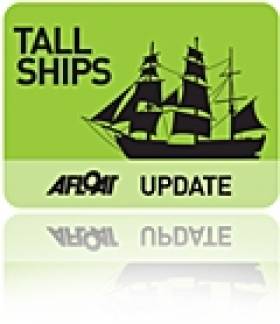Displaying items by tag: harbour master
Drogheda Port Company are inviting applications for the position of Harbour Master for the Port of Drogheda.
Drogheda Port is the largest commercial regional port in Ireland, handling over 1.5 million tonnes of cargo per annum and over 1000 ship movements.
The Co. Louth port is projecting significant future growth and is embarking on ambitious development plans over the next number of years which will see substantial investment in the port’s infrastructure, handling capacity, technology, and safety systems.
The position of Harbour Master is key to the safe and efficient management of the Port, he\she is a member of the Executive Management Team, reporting to the Chief Executive.
The Harbour Master’s primary operational responsibilities are to ensure the Port’s marine, cargo and estate management activities operate safely and efficiently.
The role requires an in-depth understanding of ship manoeuvering principles over a wide range of vessel types/class within a confined tidal waterway.
Further details can be obtained by emailing: [email protected]
Female Harbour Masters Pursuing Maritime Careers in Ireland - Podcast
Master mariners, meteorologists and marine biologists are some of the professions held by about 160 women working in the Irish maritime sector.
Two mariners, Capt Caitríona Dowling and Capt Deirdre Lane know what it is like to pursue a career in the merchant marine, having met as teenagers on the former sail training ship Asgard II.
Capt Lane is currently harbourmaster in Dunmore East, Co Waterford – a part of the coast she comes from originally.
Capt Dowling latterly worked as harbourmaster in Warrenpoint, Co Down, before being appointed navigation services manager with the Commissioners of Irish Lights (CIL).
 Capt Catriona Dowling, former harbourmaster and now Irish Lights navigation services manager
Capt Catriona Dowling, former harbourmaster and now Irish Lights navigation services manager
The two women were among a number of speakers and participants at last year's conference on empowering women in the marine, held at CIL headquarters in Dun Laoghaire, Co Dublin.
The conference, the first of its type, was hosted by CIL chief executive Yvonne Shields O'Connor to mark world maritime day 2019.
Capt Dowling and Capt Lane spoke to Lorna Siggins for RTÉ Radio Seascapes, and for Wavelengths, the new weekly podcast on news and views from the Irish coast for Afloat.
New Harbour Master Appointed For Youghal
Youghal in East Cork has been appointed its first full-time Harbour Master.
According to the East Cork Journal, the move is expected to boost Youghal as a destination for boating visitors in tandem with the new harbour pontoon.
Cork County Council advertised for the ‘full time and pensionable’ post last December, as previously reported on Afloat.ie.
The new Harbour Master, who is expected take up their role next month, will also have responsibility for the coastline to nearby Ballycotton.
The appointment comes on the heels of new council bye-laws that give Harbour Masters and proposed ‘harbour constables’ greater authority to deal with mooring fees, abandoned vessels and criminal activity.
Youghal has been the focus of a spate of outboard engine thefts in recent weeks.
The East Cork Journal has more on the story HERE.
Harbour Master – Dún Laoghaire Harbour Company Ltd
ADVERTISEMENT:
Our client, Dun Laoghaire Harbour Company Ltd., is at a significant stage in implementing its Masterplan.
The company is seeking to recruit a successor to the current Harbour Master, who is due to retire shortly.
The Harbour Master will be required to maintain a safe port, ensure that all statutory, regulatory and conservancy duties are carried out, enforce Harbour Bye-Laws and Regulations, levy rates and charges, manage port emergencies, and the port environment, and ensure compliance with safety and other relevant legislation.
The Harbour Master will be a member of the Dun Laoghaire Harbour Management Team.
The successful candidate must hold an Irish or UK Certificate of Competency, Class 1 (Master Mariner), and also have at least 5 years relevant industry experience.
Please apply by sending your CV to:
Robert Ferry
RFC Executive Recruitment
406 The Capel Building
St Marys Abbey
Dublin 7
Email: [email protected]
Closing date for receipt of applications, 4th April 2016
New Dingle Harbour Master Appointed
#dingle – A new harbour master has been appointed to Dingle Fishery Harbour Centre in County Kerry, the most westerly harbour in Europe.
Captain Nigel Collins has taken up the position having previously been Assistant Inspector of Navigation with Waterways Ireland.
The position in the port has been vacant since earlier this year, when Lieutenant Commander Brian Farrell retired from duty.
The Kerry harbour has a marina and is a popular choice with those cruising the south west coast.
Body of Final Tit Bonhomme Crewmember Recovered
#NEWS UPDATE - The body of the last missing crewmember of the stricken Tit Bonhomme was recovered in Glandore Bay in West Cork on Friday, The Irish Times reports.
The remains of 23-year-old Egyptian national Saied Ali Edlin were discovered floating on the surface to the west of the bay off Long Point, almost a mile from the wreck site and close to a month after the tragedy occurred.
It also comes just two days after the body of skipper Michael Hayes was found close to the mouth of the harbour, as previously reported on Afloat.ie.
The fishing vessel Tit Bonhomme ran aground in rough seas near Adam's Rock, at the mouth of Glandore Harbour, on Sunday 15 January.
Five of the six-person crew - Eldin, Hayes, Attea Shaban (26), Kevin Kershaw (21) and Wael Mohammed (35) - lost their lives when the boat went down.
Only 43-year-old Abdul Mohammed, the brother of Wael Mohammed, survived the sinking after he was able to reach the shore.
"Some of those lost were Egyptian, some were Irish but if you fish the sea, you’re all part of the same family," commented harbour master John Minihane. "We’re all the same, we’re one fishing family and we brought them home.”
The Irish Times has more on the story HERE.
Requirements for Recreational Craft at Tall Ships Races
The latest Marine Notice from the DTTAS includes important information for recreational craft expected to attend the Tall Ships Races in Waterford from 30 June to 3 July.
Race organisers and the Waterford harbour master have issued an approved water safety plan for the marshalling of spectator boats for the time the tall ships are in port and for the start of the race off Hook Head.
Skippers and crew must comply with all instructions and be aware of their obligations under existing maritime legislation (regarding avoidance of collisions, preventing reckless behaviour and ensuring correct safety equipment is on board).
Boat owners intending to visit should contact the harbour master for details on restricted areas and berthing spots via the Port of Waterford website or directly at 051 974 907.
Restrictions are also in place for passenger boats and ships. Only fully licenced vessels with plying limits listing Waterford as a point of departure are allowed to operate during the event. Temporary changes in plying limits can be made via the Marine Survey Office before 15 June.
Further details are available on Marine Notice No 28 of 2011 which is available to read or download HERE.


























